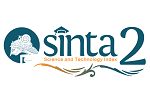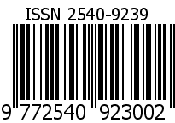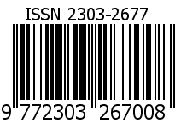Information needs and information-seeking behavior of university students in Bandung Raya
Abstract
This study addresses the specific information needs and information-seeking behavior of university students in Bandung Raya, which have yet to be widely explored in the current academic literature. Furthermore, there needs to be more information on how university students navigate information sources in searching for the information they need and the types of information they usually seek. Therefore, the researcher directed this study to determine the information needs and information-seeking patterns of students with a focus on university students in Bandung Raya. The study adopted a quantitative research design. A total of 602 students were the research sample. The online questionnaire was randomly administered to sample students. The authors found that the cognitive needs of university students in Bandung Raya were correlated with the initiation stage of the information seeking initiation stage. The authors also discovered that the cognitive needs of Bandung Raya students were correlated to the exploration stage of information search. Besides, the authors found that the formulation stage of information seeking was related to Bandung Raya students' cognitive needs. However, the research findings revealed that the Bandung Raya students' affective needs were more related to the selection stage, collection stage, and presentation stage of information-seeking behavior. The results of this study indicated the vital role of students’ affective and cognitive needs in shaping the way students sought the information they needed and why authorities should pay more attention to students' cognitive and affective needs for better academic performance.
Keywords
Full Text:
PDFReferences
Al-Zou’bi, R. (2021). The impact of media and information literacy on acquiring the critical thinking skill by the educational faculty’s students. Thinking Skills and Creativity, 39(100782), 1–7. https://doi.org/10.1016/j.tsc.2020.100782
Aladem, D., & Rehman, S. (2022). Beyond the search process: Exploring the affective stages in developing a research proposal. Library and Information Research, October, 1–29. https://doi.org/10.29173/lirg818
Alazemi, M. (2023). Investigating the information-seeking behavior of undergraduate students who utilize Kuwait Academic Library database. International Journal of Advanced Engineering and Management Research, 08(02), 40–52. https://doi.org/10.51505/ijaemr.2023.8204
Amin, K. H. A. K., & Nazan, A. I. N. M. (2022). Cognitive determinants of health information seeking behavior through social media platforms among Malaysian adults. Malaysian Journal of Medicine and Health Sciences, 18(4), 113–118. https://doi.org/10.47836//mjmhs18.4.16
Ashikuzzaman, M., Islam, M. S., & Amin, M. E. (2023). University libraries’ response to online teaching and learning in Bangladesh: A perspective on online library services during COVID-19 pandemic. Library Philosophy & Practice, 7737. https://digitalcommons.unl.edu/libphilprac/7737
Asosiasi Penyedia Jasa Internet Indonesia. (2023). Survei penetrasi dan perilaku internet 2023.
Association of College and Research Libraries. (2015). Framework for information literacy for higher education. https://www.ala.org/sites/default/files/acrl/content/issues/infolit/Framework_ILHE.pdf
Babbie, E. (2021). The practice of social research (Fifteenth). Cengage.
Baruah, J., Dalton, D., & Borchardt, J. (2024). A comparison of online and offline support modalities as predictors of stress among traditional and non-traditional college students. The Journal of Continuing Higher Education, 72(1), 33–49. https://doi.org/10.1080/07377363.2022.2108649
Blummer, B., & Kenton, J. M. (2014). Education graduate students’ information-seeking skills. In Improving Student Information Search (pp. 55–64). Elsevier. https://doi.org/10.1533/9781780634623.55
Bosancic, B., & Matijevic, M. (2020). Information as a construction. Journal of Librarianship and Information Science, 52(2), 620–630. https://doi.org/10.1177/0961000619841657
Cain, C., Bryant, A., Buskey, C., & Ferguson, Y. (2022). Generation Z, learning preferences, and technology: An academic technology framework based on enterprise architecture. Journal of the Southern Association for Information Systems, 9(1), 1–14. https://doi.org/10.17705/3JSIS.00019
Carr, P. L. (2014). Reimagining the library as a technology: An analysis of Ranganathan’s five laws of library science within the social construction of technology framework. The Library Quarterly, 84(2), 152–164. https://doi.org/10.1086/675355
Cooke, N. A. (2017). Posttruth, Truthiness, and Alternative Facts: Information Behavior and Critical Information Consumption for a New Age. Library Quarterly: Information, Community, Policy, 87(3), 211–221. https://www.journals.uchicago.edu/doi/abs/10.1086/692298?journalCode=lq
Dahlqvist, C. (2022). Understanding information-seeking achievement emotions - exploring a cognitive appraisal theory framework. Information Research: An International Electronic Journal, 27(Special Issue). https://doi.org/10.47989/colis2214
Day, R. E. (2024). Documentation to documentality in the works of Michael Buckland. Journal of Documentation, 80(3), 606–617. https://doi.org/10.1108/JD-04-2023-0066
Dokuka, S., Valeeva, D., & Yudkevich, M. (2020). How academic achievement spreads: The role of distinct social networks in academic performance diffusion. PLOS ONE, 15(7), e0236737. https://doi.org/10.1371/journal.pone.0236737
Duyan, V., Uçar, M. E., & Kalafat, T. (2011). Adaptating the need for affect scale to Turkish culture and its psychometric qualities. Education and Science, 36(161), 116–130. https://acikerisim.aksaray.edu.tr/xmlui/handle/20.500.12451/2784
Haliru, R. A., & Mohammed, A. D. (2021). Information seeking behavior and affective states: a case of nursing mothers seeking information in the context of formal settings without a crèche facility at department of library and information science A.B.U. Zaria. Samaru Journal of Information Studies, 23(1), 13–19. https://www.ajol.info/index.php/sjis/article/view/217867
Hartog, P. (2017). A generation of information anxiety: Refinements and recommendations. The Christian Librarian, 60(1), 44–55. https://doi.org/10.55221/2572-7478.1007
Hussain, A., Taimoor-ul-Hassan, & Shabir, G. (2019). Personal integrative needs and use of social media. Library Philosophy and Practice, 3978. https://digitalcommons.unl.edu/libphilprac/3978/
Jeebakaran, M., & Shanmugathasan, S. (2022). Students’ information seeking behaviour. Sri Lanka Library Review, 36(1), 29–44. https://doi.org/10.4038/sllr.v36i1.48
Kahlal, H. (2014). Information seeking behaviour: A comparison between business and engineering undergraduate students in tertiary environments [RMIT University]. https://studylib.net/doc/6603389/information-seeking-behaviour--a-comparison---bp140
Khazer, M., & Ganaie, S. A. (2018). Impact of technology on information seeking behavior a case with post graduate students of select universities in Jammu and Kashmir. 2018 5th International Symposium on Emerging Trends and Technologies in Libraries and Information Services (ETTLIS), 254–258. https://doi.org/10.1109/ETTLIS.2018.8485272
Kusuma, I. P., Asmiyanto, T., & Rahmi. (2021). Understanding information-seeking behaviour of undergraduate extension program students in faculty of administrative science, Universitas Indonesia. Library Philosophy and Practice, 5060. https://digitalcommons.unl.edu/libphilprac/5060/
Kwasitsu, L., & Chiu, A. M. (2019). Mobile information behavior of Warner Pacific University students. Library & Information Science Research, 41(2), 139–150. https://doi.org/10.1016/j.lisr.2019.04.002
Lacković, D. (2015). Students’ information behaviour and the role of academic library. Libellarium: Časopis Za Istraživanja u Području Informacijskih i Srodnih Znanosti, 7(1), 119–139. https://doi.org/10.15291/libellarium.v7i1.202
Li, X., Luo, X., Cox, A., Zhang, Y., & Lu, Y. (2023). The mental health information needs of Chinese university students and their use of online resources: a holistic model. Journal of Documentation, 79(2), 442–467. https://doi.org/10.1108/JD-12-2021-0249
Manasijević, D., Živković, D., Arsić, S., & Milošević, I. (2016). Exploring students’ purposes of usage and educational usage of Facebook. Computers in Human Behavior, 60, 441–450. https://doi.org/10.1016/j.chb.2016.02.087
Michalak, R., Rysavy, M., Hunt, K., Smith, B., & Worden, J. (2018). Faculty perceptions of plagiarism: Insight for librarians’ information literacy programs. College & Research Libraries, 79(6), 747–767. https://doi.org/10.5860/crl.79.6.747
Miraj, M., Chuntian, L., Mohd Said, R., Osei-Bonsu, R., & Rehman, R. ur. (2021). How information-seeking behavior, essential technologies, and resilience enhance the academic performance of students. Frontiers in Psychology, 12(August). https://doi.org/10.3389/fpsyg.2021.651550
Mungwabi, H. (2023). Assessment on usage of the library website resources by students in the information studies programme at the University of Dar es Salaam. Tanzania Journal of Engineering and Technology, 42(2), 224–237. https://doi.org/10.52339/tjet.v42i2.917
Muthee, D. W., & Masinde, J. M. (2019). Cognitive factors that influence information-seeking behavioural process amongst postgraduate students: A case study from Kenyatta University post-modern Library in Nairobi, Kenya. World Digital Libraries, 12(2), 15–44. https://doi.org/10.18329/09757597/2019/12207
Nafiisah, S. (2023). Hubungan pencarian informasi Lee Jeno pada akun Twitter @LeeJeno_IDN dengan kebutuhan informasi followers. Tibanndaru: Jurnal Ilmu Perpustakaan Dan Informasi, 7(1), 67. https://doi.org/10.30742/tb.v7i1.2672
Naveed, M. A. (2017). Information seeking anxiety: Background, research, and implications. International Information & Library Review, 49(4), 266–273. https://doi.org/10.1080/10572317.2017.1319713
O’Brien, H. L., Dickinson, R., & Askin, N. (2017). A scoping review of individual differences in information seeking behavior and retrieval research between 2000 and 2015. Library & Information Science Research, 39(3), 244–254. https://doi.org/10.1016/j.lisr.2017.07.007
Orlu, A. D. (2016). Information seeking behaviour of masters students: Affective and behavioural dimensions. Library Philosophy and Practice, 1387. https://digitalcommons.unl.edu/libphilprac/1387/
Oyetunji, R., Chigbundu, M. C., & Olokode, D. A. (2022). Information needs and seeking pattern of children in public libraries: A case study of Kwara State Library, Nigeria. Library Philosophy & Practice, 7472. https://digitalcommons.unl.edu/libphilprac/7472/
Paramita, A., Winoto, Y., & Khadijah, U. L. S. (2023). Analysis of user behavior and information needs in public library in Depok. International Journal of Islamic Education, Research and Multiculturalism (IJIERM), 4(3), 264–278. https://doi.org/10.47006/ijierm.v4i3.153
Parveaz, S., & Khan, A. (2022). Understanding information seeking behavior of users in academic context (a critical review of literature). ECS Transactions, 107(1), 9673–9694. https://doi.org/10.1149/10701.9673ecst
Ponto, J. (2015). Understanding and evaluating survey research. Journal of the Advanced Practitioner in Oncology, 6(2), 168–171. https://pmc.ncbi.nlm.nih.gov/articles/PMC4601897/
Potnis, D. (2015). Wilson’s information-seeking behavior models (1981, 1996, 1999). In Information Seeking Behavior and Technology Adoption: Theories and Trends (pp. 94–112). https://doi.org/10.4018/978-1-4666-8156-9.ch006
Prijana, & Yanto, A. (2020). Metode penelitian perpustakaan dan sains informasi. Simbiosa Rekatama Media.
Robinson, L., & Bawden, D. (2014). Mind the gap: transitions between concepts of information in varied domains. In Studies in History and Philosophy of Science (Netherlands) (Vol. 34, pp. 121–141). https://doi.org/10.1007/978-94-007-6973-1_6
Savolainen, R. (2014). Emotions as motivators for information seeking: A conceptual analysis. Library & Information Science Research, 36(1), 59–65. https://doi.org/10.1016/j.lisr.2013.10.004
Savolainen, R. (2015a). Approaching the affective factors of information seeking: the viewpoint of the lnformation Search Process model. Information Research, 20(1), 2–5. https://informationr.net/ir/20-1/isic2/isic28.html
Savolainen, R. (2015b). The interplay of affective and cognitive factors in information seeking and use. Journal of Documentation, 71(1), 175–197. https://doi.org/10.1108/JD-10-2013-0134
Selwyn, N., & Gorard, S. (2016). Students’ use of Wikipedia as an academic resource — Patterns of use and perceptions of usefulness. The Internet and Higher Education, 28(July), 28–34. https://doi.org/10.1016/j.iheduc.2015.08.004
Shao, X., & Purpur, G. (2016). Effects of information literacy skills on student writing and course performance. The Journal of Academic Librarianship, 42(6), 670–678. https://doi.org/10.1016/j.acalib.2016.08.006
Sharun, S. (2021). Practicing information literacy: Practicum students negotiating information practice in workplace settings. The Journal of Academic Librarianship, 47(1), 102267. https://doi.org/10.1016/j.acalib.2020.102267
Sinha, M. K. (2015). A study on information needs and information seeking pattern of Public Library Users of Barak Valley, South Assam. IOSR Journal Of Humanities And Social Science, 20(8), 13–36. https://papers.ssrn.com/sol3/papers.cfm?abstract_id=2662865
Soler-Adillon, J., Pavlovic, D., & Freixa, P. (2018). Wikipedia in higher education: Changes in perceived value through content contribution. Comunicar, 26(54), 39–48. https://doi.org/10.3916/C54-2018-04
Sutrisno, Andre, H. L., & Susilawati. (2021). The analysis of the facilities and ICT applications usage by the university’s students. Journal of Physics: Conference Series, 1793(1), 012050. https://doi.org/10.1088/1742-6596/1793/1/012050
Taber, K. S. (2018). The use of cronbach’s alpha when developing and reporting research instruments in science education. Research in Science Education, 48(6), 1273–1296. https://doi.org/10.1007/s11165-016-9602-2
Tomás-Miquel, J.-V., Nicolau-Juliá, D., & Expósito-Langa, M. (2016). The social relations of university students: intensity, interaction and association with academic performance / Las relaciones sociales de los estudiantes en la universidad: intensidad, interrelación y vinculación con el rendimiento académico. Cultura y Educación, 28(4), 667–701. https://doi.org/10.1080/11356405.2016.1237340
Wati, M., Safii, M., & Martutik. (2023). Information behavior of cum laude graduates at Universitas Riau in 2020. Jurnal Kajian Informasi & Perpustakaan, 11(1), 93–108. https://doi.org/10.24198/jkip.v11i1.35250
Weber, H., Becker, D., & Hillmert, S. (2019). Information-seeking behaviour and academic success in higher education: Which search strategies matter for grade differences among university students and how does this relevance differ by field of study? Higher Education, 77(4), 657–678. https://doi.org/10.1007/s10734-018-0296-4
Wijetunge, P. (2019). Information seeking behavior of the humanities and social science undergraduates: A case of University of Colombo. Journal of the University Librarians Association of Sri Lanka, 22(1), 1–22. https://doi.org/10.4038/jula.v22i1.7927
Yarin, A. J., Encalada, I. A., Elias, J. W., Surichaqui, A. A., Sulca, R. E., & Pozo, F. (2022). Relationship between motivation and academic performance in Peruvian undergraduate students in the subject mathematics. Education Research International, 1–11. https://doi.org/10.1155/2022/3667076
DOI: https://doi.org/10.24198/jkip.v12i2.51367
Refbacks
- There are currently no refbacks.
Copyright (c) 2024 Author(s)

This work is licensed under a Creative Commons Attribution-ShareAlike 4.0 International License.
Jurnal Kajian Informasi & Perpustakaan Indexed by:
Jurnal Kajian Informasi & Perpustakaan
Program Studi Perpustakaan dan Sains Informasi d.h. Program Studi Ilmu Perpustakaan
Fakultas Ilmu Komunikasi, Universitas Padjadjaran
Jl. Raya Bandung-Sumedang Km. 21 Jatinangor, Sumedang, Indonesia 45363
WA: +62 877-1860-4022 (Risa Nurisani)
Telepon: +62227796954
Faksimile: +62227794122
email: jkip.fikom@unpad.ac.id
Jurnal Kajian Informasi & Perpustakaan is licensed under a Creative Commons Attribution-ShareAlike 4.0 International License
Jurnal Kajian Informasi & Perpustakaan supervised by:












2.png)
.png)



